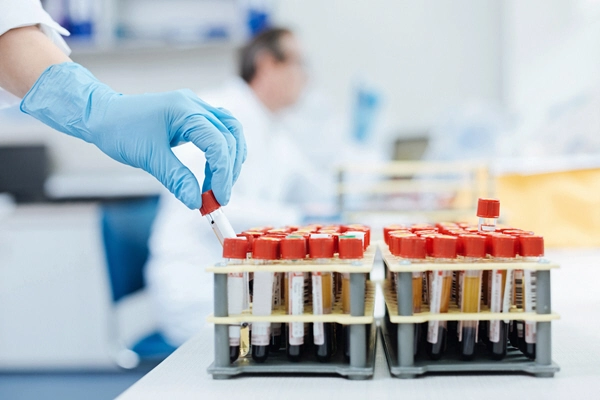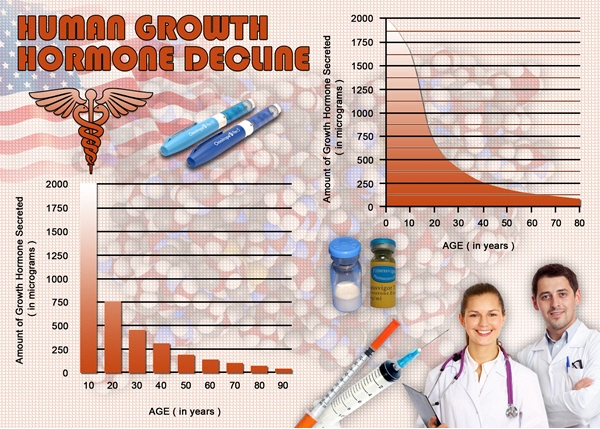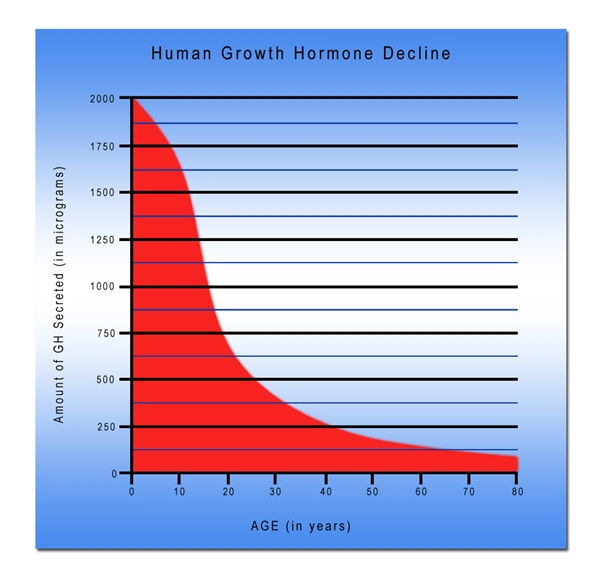Introduction
Mental health stigma remains a pervasive barrier to treatment and recovery, particularly among American men. Despite increasing awareness and efforts to destigmatize mental health issues, many men continue to face significant challenges in seeking help. This article explores the impact of mental health stigma on help-seeking behaviors in American men, drawing on a qualitative study that examines their perceptions and attitudes. By understanding these dynamics, we can better address the unique needs of men and promote healthier outcomes.
The Prevalence of Mental Health Stigma Among American Men
Mental health stigma is a complex phenomenon that encompasses societal attitudes, stereotypes, and discrimination against individuals with mental health conditions. For American men, this stigma is often compounded by cultural expectations of masculinity, which emphasize stoicism, self-reliance, and emotional restraint. According to a study by the American Psychological Association, nearly 40% of men reported feeling reluctant to seek mental health treatment due to concerns about being perceived as weak or less masculine.
Qualitative Insights into Perceptions and Attitudes
A recent qualitative study conducted by researchers at Johns Hopkins University delved into the perceptions and attitudes of American men regarding mental health stigma and help-seeking behaviors. Through in-depth interviews with a diverse group of participants, the study revealed several key themes that shed light on the challenges men face.
Fear of Judgment and Social Repercussions
One of the most prominent themes was the fear of judgment and social repercussions. Many participants expressed concerns about how seeking mental health treatment might affect their relationships, careers, and social standing. One participant, a 35-year-old engineer, stated, "I'm worried that if my boss finds out I'm seeing a therapist, it could impact my chances of getting promoted. There's still a lot of stigma around mental health in the workplace."
Internalized Stigma and Self-Perception
Internalized stigma also played a significant role in shaping men's help-seeking behaviors. Participants often internalized societal stereotypes about mental illness, leading to feelings of shame and self-blame. A 28-year-old teacher shared, "I've always been told that real men don't cry or show weakness. When I started feeling depressed, I thought there was something wrong with me, that I wasn't strong enough."
The Role of Support Systems and Encouragement
Despite these challenges, the study also highlighted the importance of support systems and encouragement in overcoming mental health stigma. Participants who had supportive family members, friends, or colleagues were more likely to seek help. A 42-year-old father of two noted, "My wife encouraged me to see a therapist when she noticed I was struggling. Having her support made a huge difference."
Strategies for Reducing Stigma and Improving Help-Seeking Behaviors
To address the impact of mental health stigma on American men, several strategies can be implemented. First, increasing public awareness and education about mental health can help challenge stereotypes and promote a more compassionate understanding of mental illness. Campaigns like the "Real Men, Real Depression" initiative by the National Institute of Mental Health have shown promise in reaching men and encouraging them to seek help.
Second, creating safe and supportive environments in workplaces, schools, and communities can facilitate open conversations about mental health. Employers can play a crucial role by offering mental health resources, promoting work-life balance, and fostering a culture of acceptance and support.
Finally, encouraging men to build and rely on support networks can be instrumental in overcoming stigma. Peer support groups, such as those offered by the National Alliance on Mental Illness (NAMI), provide a platform for men to share their experiences and receive encouragement from others facing similar challenges.
Conclusion
Mental health stigma continues to pose a significant barrier to help-seeking behaviors among American men. By understanding the perceptions and attitudes that contribute to this stigma, we can develop targeted interventions to support men in seeking the help they need. Through increased awareness, supportive environments, and strong support networks, we can break the silence surrounding mental health and empower men to prioritize their well-being.

- Understanding and Treating Erectile Dysfunction: A Comprehensive Guide for American Men [Last Updated On: March 2nd, 2025] [Originally Added On: March 2nd, 2025]
- Optimizing Men's Health: Strategic Use of Supplements for American Males [Last Updated On: March 17th, 2025] [Originally Added On: March 17th, 2025]
- Top Modern Fitness Trends Transforming Men's Health in America [Last Updated On: March 18th, 2025] [Originally Added On: March 18th, 2025]
- Meditation's Impact on Men's Mental Health: Stress Relief, Resilience, and Well-being [Last Updated On: March 18th, 2025] [Originally Added On: March 18th, 2025]
- Osteoporosis in Men: Prevention and Management Strategies for Bone Health [Last Updated On: March 18th, 2025] [Originally Added On: March 18th, 2025]
- Stress and Heart Health: Impacts and Management Strategies for American Men [Last Updated On: March 18th, 2025] [Originally Added On: March 18th, 2025]
- Addressing Mental Health Stigma in American Men: Challenges and Strategies for Change [Last Updated On: March 19th, 2025] [Originally Added On: March 19th, 2025]
- Physical Activity's Role in Cancer Prevention for American Men: Strategies and Benefits [Last Updated On: March 19th, 2025] [Originally Added On: March 19th, 2025]
- Hydration's Vital Role in Men's Health: Benefits and Practical Tips [Last Updated On: March 19th, 2025] [Originally Added On: March 19th, 2025]
- Gut Health's Role in American Males' Wellness: Microbiome, Mental, and Cardiovascular Health [Last Updated On: March 20th, 2025] [Originally Added On: March 20th, 2025]
- Managing Allergies in American Men: Triggers, Strategies, and Workplace Solutions [Last Updated On: March 21st, 2025] [Originally Added On: March 21st, 2025]
- Gout in American Men: Causes, Symptoms, and Management Strategies [Last Updated On: March 21st, 2025] [Originally Added On: March 21st, 2025]
- Work-Life Balance Impact on American Men's Health: Strategies for Improvement [Last Updated On: March 21st, 2025] [Originally Added On: March 21st, 2025]
- Sleep Apnea in American Men: Symptoms, Risks, and Management Strategies [Last Updated On: March 21st, 2025] [Originally Added On: March 21st, 2025]
- Understanding and Overcoming Male Infertility: Causes, Diagnosis, and Treatment Options [Last Updated On: March 21st, 2025] [Originally Added On: March 21st, 2025]
- Mental Health Days: Essential for American Men's Well-being and Productivity [Last Updated On: March 22nd, 2025] [Originally Added On: March 22nd, 2025]
- Asthma in Men: Understanding Risks, Symptoms, and Tailored Management Strategies [Last Updated On: March 22nd, 2025] [Originally Added On: March 22nd, 2025]
- Dental Health's Crucial Role in Men's Overall Wellness and Life Quality [Last Updated On: March 22nd, 2025] [Originally Added On: March 22nd, 2025]
- Alcohol's Impact on Liver Health in American Males: Prevention and Management Strategies [Last Updated On: March 23rd, 2025] [Originally Added On: March 23rd, 2025]
- Dietary Strategies for Enhancing Prostate Health in American Men [Last Updated On: March 23rd, 2025] [Originally Added On: March 23rd, 2025]
- High Cholesterol in American Men: Risks, Management, and Prevention Strategies [Last Updated On: March 23rd, 2025] [Originally Added On: March 23rd, 2025]
- Swimming: Enhancing Men's Health from Heart to Mind [Last Updated On: March 23rd, 2025] [Originally Added On: March 23rd, 2025]
- Caffeine's Impact on American Men's Health: Benefits and Risks [Last Updated On: March 24th, 2025] [Originally Added On: March 24th, 2025]
- Strength Training: Enhancing Health, Mental Well-being, and Longevity for American Men [Last Updated On: March 24th, 2025] [Originally Added On: March 24th, 2025]
- Exercise Benefits and Strategies for Men Managing Diabetes [Last Updated On: March 24th, 2025] [Originally Added On: March 24th, 2025]
- Effective Strategies for American Men to Quit Smoking and Improve Health [Last Updated On: March 24th, 2025] [Originally Added On: March 24th, 2025]
- Obesity and Cancer Risks in American Men: Understanding and Mitigating the Link [Last Updated On: March 24th, 2025] [Originally Added On: March 24th, 2025]
- Dietary Fiber: Essential Health Benefits for American Men [Last Updated On: March 24th, 2025] [Originally Added On: March 24th, 2025]
- Kidney Stones in American Men: Causes, Symptoms, and Management Strategies [Last Updated On: March 25th, 2025] [Originally Added On: March 25th, 2025]
- Hemorrhoids in American Men: Causes, Symptoms, Management, and Prevention Strategies [Last Updated On: March 25th, 2025] [Originally Added On: March 25th, 2025]
- Proactive Health Strategies for American Men: Screenings, Lifestyle, and Mental Well-being [Last Updated On: March 25th, 2025] [Originally Added On: March 25th, 2025]
- Managing Anxiety in American Men: Tools and Techniques for a Healthier Life [Last Updated On: March 25th, 2025] [Originally Added On: March 25th, 2025]
- Social Connections: Vital for American Men's Mental Health and Well-being [Last Updated On: March 25th, 2025] [Originally Added On: March 25th, 2025]
- Sleep's Vital Role in Weight Management for American Men [Last Updated On: March 25th, 2025] [Originally Added On: March 25th, 2025]
- Seasonal Affective Disorder in American Men: Symptoms, Impact, and Management Strategies [Last Updated On: March 25th, 2025] [Originally Added On: March 25th, 2025]
- Stroke Risks and Prevention Strategies for American Men [Last Updated On: March 26th, 2025] [Originally Added On: March 26th, 2025]
- Annual Physicals: Essential for Men's Health and Disease Prevention in the U.S. [Last Updated On: March 26th, 2025] [Originally Added On: March 26th, 2025]
- Hiking: Enhancing Men's Physical, Mental, and Social Health in America [Last Updated On: March 26th, 2025] [Originally Added On: March 26th, 2025]
- Depression in Men: Symptoms, Treatment Options, and the Importance of Seeking Help [Last Updated On: March 27th, 2025] [Originally Added On: March 27th, 2025]
- Tai Chi Benefits for American Men: Health, Strength, and Mental Clarity [Last Updated On: March 27th, 2025] [Originally Added On: March 27th, 2025]
- Workplace Mental Health Initiatives: Enhancing American Men's Well-being and Productivity [Last Updated On: March 27th, 2025] [Originally Added On: March 27th, 2025]
- Plant-Based Diets: Health Benefits for American Men's Heart, Weight, and Mental Well-being [Last Updated On: March 27th, 2025] [Originally Added On: March 27th, 2025]
- Pilates Benefits for American Men: Core Strength, Flexibility, and Mental Health [Last Updated On: March 27th, 2025] [Originally Added On: March 27th, 2025]
- Arthritis in American Men: Understanding, Preventing, and Managing the Condition Effectively [Last Updated On: March 27th, 2025] [Originally Added On: March 27th, 2025]
- Stress and Digestive Health in American Males: Understanding and Managing the Gut-Brain Axis [Last Updated On: March 27th, 2025] [Originally Added On: March 27th, 2025]
- Breaking Stigma: The Crucial Role of Mental Health Screening for American Men [Last Updated On: March 28th, 2025] [Originally Added On: March 28th, 2025]
- Varicose Veins in Men: Causes, Symptoms, and Treatment Options [Last Updated On: March 28th, 2025] [Originally Added On: March 28th, 2025]
- Insomnia in American Men: Impacts, Strategies, and Solutions for Better Sleep [Last Updated On: March 28th, 2025] [Originally Added On: March 28th, 2025]
- Cycling Benefits for American Men: Enhancing Health and Well-being [Last Updated On: March 28th, 2025] [Originally Added On: March 28th, 2025]
- Diet and Heart Disease in American Men: Key Factors and Healthy Eating Strategies [Last Updated On: March 29th, 2025] [Originally Added On: March 29th, 2025]
- Routine Eye Exams: Essential for Men's Vision and Overall Health [Last Updated On: March 30th, 2025] [Originally Added On: March 30th, 2025]
- Environmental Pollution's Impact on Men's Health: Risks and Mitigation Strategies [Last Updated On: March 30th, 2025] [Originally Added On: March 30th, 2025]
- Antioxidants: Boosting Health and Preventing Disease in American Men [Last Updated On: April 1st, 2025] [Originally Added On: April 1st, 2025]
- Breaking the Stigma: Enhancing Men's Mental Health Through Education and Awareness [Last Updated On: April 2nd, 2025] [Originally Added On: April 2nd, 2025]
- Rowing's Rise: Health Benefits for American Men's Fitness and Well-being [Last Updated On: April 3rd, 2025] [Originally Added On: April 3rd, 2025]
- Migraines in Men: Symptoms, Triggers, and Effective Management Strategies [Last Updated On: April 5th, 2025] [Originally Added On: April 5th, 2025]
- Back Pain in Men: Causes, Prevention, and Management Strategies [Last Updated On: April 5th, 2025] [Originally Added On: April 5th, 2025]
- Community Impact on Men's Health: Social Connections, Programs, and Preventive Care in America [Last Updated On: April 6th, 2025] [Originally Added On: April 6th, 2025]
- Martial Arts: Enhancing Men's Health and Lifestyle in the U.S. [Last Updated On: April 6th, 2025] [Originally Added On: April 6th, 2025]
- Skin Cancer in American Men: Risks, Prevention, and Early Detection Strategies [Last Updated On: April 6th, 2025] [Originally Added On: April 6th, 2025]
- Alcohol and Mental Health: A Critical Analysis Among American Males [Last Updated On: April 8th, 2025] [Originally Added On: April 8th, 2025]
- Technology's Dual Impact on U.S. Men's Health: Challenges and Solutions [Last Updated On: April 9th, 2025] [Originally Added On: April 9th, 2025]
- Essential Vitamins for Men's Health: D, B12, C, E, K Benefits and Sources [Last Updated On: April 10th, 2025] [Originally Added On: April 10th, 2025]
- Obesity and Diabetes: A Critical Health Concern for American Men [Last Updated On: April 11th, 2025] [Originally Added On: April 11th, 2025]
- Hearing Health for American Men: Prevention, Impact, and Technological Solutions [Last Updated On: April 11th, 2025] [Originally Added On: April 11th, 2025]
- Running's Health Benefits for American Men: Cardiovascular, Weight, Mental, Bone, Diabetes [Last Updated On: April 12th, 2025] [Originally Added On: April 12th, 2025]
- Managing Panic Attacks in American Men: Symptoms, Strategies, and Support [Last Updated On: April 13th, 2025] [Originally Added On: April 13th, 2025]
- CrossFit: Enhancing American Men's Health Through Fitness and Community [Last Updated On: April 14th, 2025] [Originally Added On: April 14th, 2025]
- Managing IBS in American Men: Symptoms, Diet, Lifestyle, and Mental Health Strategies [Last Updated On: April 15th, 2025] [Originally Added On: April 15th, 2025]
- Transforming Men's Mental Health: The Power of Awareness Campaigns in America [Last Updated On: April 16th, 2025] [Originally Added On: April 16th, 2025]
- Joint Pain in American Men: Causes, Prevention, and Management Strategies [Last Updated On: April 17th, 2025] [Originally Added On: April 17th, 2025]
- Lung Cancer in American Men: Risks, Symptoms, and Prevention Strategies [Last Updated On: April 18th, 2025] [Originally Added On: April 18th, 2025]
- Basketball's Impact on Men's Health: Physical, Mental, and Social Benefits [Last Updated On: April 19th, 2025] [Originally Added On: April 19th, 2025]
- Soccer: Enhancing American Men's Health from Heart to Mind [Last Updated On: April 19th, 2025] [Originally Added On: April 19th, 2025]
- Diet and Mental Health: Key Nutrients and Strategies for American Men [Last Updated On: April 19th, 2025] [Originally Added On: April 19th, 2025]
- Family Support: Enhancing Health and Wellbeing of American Men [Last Updated On: April 19th, 2025] [Originally Added On: April 19th, 2025]
- Obesity and Heart Disease in American Men: Risks, Mechanisms, and Interventions [Last Updated On: April 20th, 2025] [Originally Added On: April 20th, 2025]
- Mental Health First Aid: A Lifeline for American Men's Well-being [Last Updated On: April 20th, 2025] [Originally Added On: April 20th, 2025]
- Bipolar Disorder in American Men: Symptoms, Treatment, and Holistic Management Strategies [Last Updated On: April 22nd, 2025] [Originally Added On: April 22nd, 2025]
- Prostate Cancer Screening Enhances Survival Rates in American Men: A Retrospective Study [Last Updated On: April 22nd, 2025] [Originally Added On: April 22nd, 2025]



List of USA state clinics - click a flag below for blood testing clinics.
Word Count: 650


















































